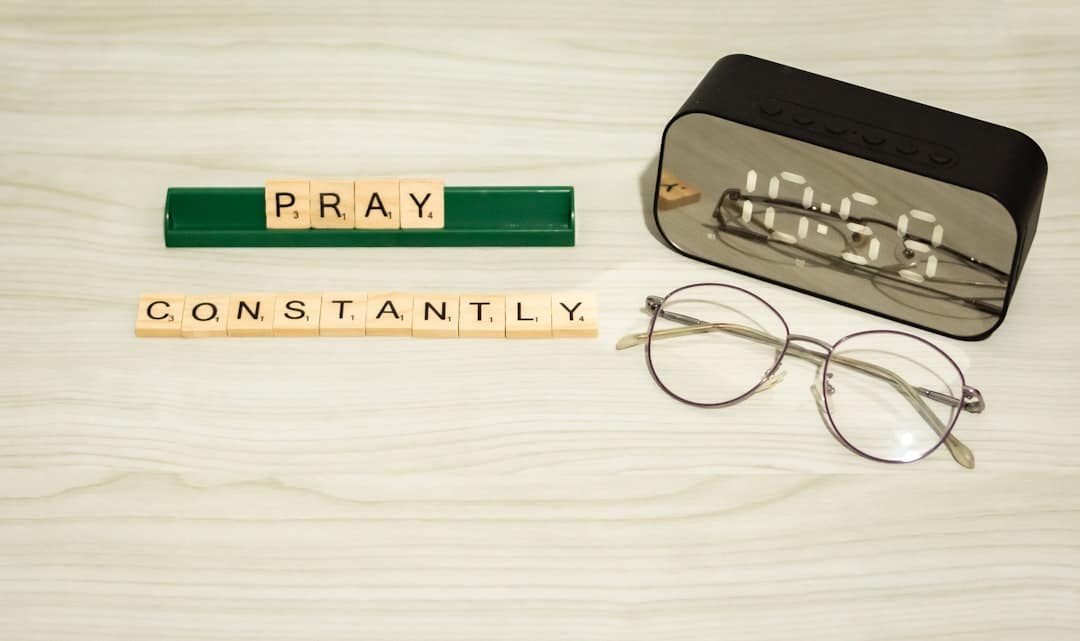The five daily prayers (ṣalāh) are the backbone of a Muslim’s spiritual life. Yet travel, illness, deep sleep, or unavoidable work sometimes cause one or more prayers to be missed. When that happens, Islam provides a clear, merciful remedy: qāḍāʾ—the performance of a missed prayer outside its prescribed time. This guide walks you through everything you need to know about making up those missed prayers, from the legal rulings to the practical steps, so you can restore your spiritual balance with confidence and sincerity.
Understanding Qāḍāʾ Prayers
What Exactly Is Qāḍāʾ?
In Islamic jurisprudence, qāḍāʾ literally means “to fulfill” or “to perform after the due time.” When applied to ṣalāh, it refers to any obligatory prayer offered after the fixed window for that prayer has ended. The missed prayer remains a personal obligation (farḍ ʿayn) until it is performed, regardless of how much time has passed.
When Does a Prayer Become “Missed”?
A prayer is considered missed once the end time of its period expires and one has not prayed within that window without a valid excuse. Valid excuses include:
- Unconsciousness or deep sleep
- Mental incapacity or forgetfulness
- Menstruation or post-natal bleeding (for women)
- Extreme danger (e.g., active warfare)
If the omission was deliberate without excuse, the obligation still stands, but the person bears the burden of sin in addition to the duty of qāḍāʾ.
Qaḍāʾ vs. Aḍāʾ vs. Qaḍāʾ Muʾajjal
| Term | Meaning | Example |
|---|---|---|
| Aḍāʾ | Performing the prayer within its fixed time | Praying Fajr at 6:00 AM before sunrise |
| Qaḍāʾ | Making up the prayer after its time has ended | Praying Fajr at 8:00 AM because you overslept |
| Qaḍāʾ Muʾajjal | Making up the prayer immediately after remembering | Praying ʿAsr right away after realizing you missed it |
Key Components of Making Up Missed Prayers
Step-by-Step Method
- Intention (niyyah): Make a specific intention in the heart: “I intend to perform the fard of Ẓuhr that I missed yesterday for the sake of Allah.” Naming the prayer and the day is recommended by most jurists.
- State of Purity: Ensure wuḍūʾ or ghusl as required.
- Timing: Choose permissible hours (see next subsection).
- Rakʿahs: Offer the exact same number of rakʿahs as the original obligation (2 for Fajr, 4 for Ẓuhr, etc.).
- Recitation: Recite al-Fātiḥah and an additional surah in the first two rakʿahs.
- Tashahhud & Salām: Complete the prayer normally.
Order of Missed Prayers
There are two scholarly views:
- Majority (Ḥanafī, Mālikī, Ḥanbalī): Strict order is obligatory. If you missed Fajr and ʿAsr, you must pray Fajr first.
- Shāfiʿī school: Order is recommended but not obligatory; praying out of order is valid if easier.
A practical rule: when in doubt, follow the order to avoid scholarly disagreement.
Permissible and Impermissible Times for Qaḍāʾ
Forbidden times (for both nafl and qaḍāʾ):
- After Fajr until sunrise (approx. 15–20 minutes)
- At high noon when the sun is at its zenith (few minutes)
- After ʿAsr until sunset
- After ʿIshāʾ until the middle of the night, if combining with sleep
Permissible times: Anytime outside the above windows. Night hours (after ʿIshāʾ and before Fajr) are especially encouraged.
Benefits and Importance of Making Up Prayers
Spiritual Rectification
Every missed prayer is a void in the heart’s connection with Allah. Performing qaḍāʾ:
- Restores the link of khushūʿ (mindfulness)
- Generates barakah (divine blessing) in time and provision
- Erases the burden of negligence recorded by angels
Legal and Eschatological Benefits
The Prophet ﷺ warned, “Whoever forgets a prayer or sleeps through it must make it up immediately, and its expiation is that alone.” (Bukhārī & Muslim). On the Day of Judgement, any unpaid prayers will be demanded before other deeds are weighed. Regular qaḍāʾ prevents this catastrophic shortfall.
Psychological Peace
Many Muslims describe a lingering guilt over missed prayers. A systematic qaḍāʾ schedule lifts that weight, replacing anxiety with taqwā-driven serenity.
Practical Applications
Creating a Realistic Catch-Up Plan
Step 1: Audit
List on paper or in an app every prayer you believe you missed. Use the following template:
| Prayer | Date | Reason (if known) | Qaḍāʾ Status |
|---|---|---|---|
| Fajr | 12 May 2025 | Overslept | Pending |
| ʿAsr | 10 May 2025 | Travel | Completed |
Step 2: Prioritize
Start with the oldest prayers. If the backlog is large (years), consult a reliable scholar for individualized fatwa; some advise grouping (e.g., five days of missed prayers prayed each day).
Step 3: Allocate Slots
Add qaḍāʾ to existing routines:
- After Sunnah of Fajr: 1 missed Fajr
- After Maghrib: 1 missed Ẓuhr + 1 missed ʿAsr
- Before Witr: 1 missed Maghrib + 1 missed ʿIshāʾ
Step 4: Track Progress
Use a whiteboard, spreadsheet, or mobile reminder. Celebrate milestone days (e.g., 30 prayers cleared) to stay motivated.
Real-Life Case Studies
Case 1: New Mother with Postnatal Fatigue
Situation: Sister Aisha missed 40 prayers during her first month postpartum.
Solution: She prayed one qaḍāʾ along with each current prayer—simple because she was already awake for the baby’s feeding schedule. Within two months her backlog was gone.
Case 2: College Student Cramming for Finals
Situation: Yūsuf skipped 12 prayers during exam week.
Solution: He set a daily alarm at 5:00 AM, prayed Fajr, then immediately prayed two qaḍāʾ units (Fajr + Ẓuhr from the backlog). In six mornings he was caught up.
Case 3: Long-Term Neglect
Situation: ʿAbd al-Rahmāestimates 1,500 missed prayers over 15 years.
Solution: After consulting a ḥanafī mufti, he adopted the “one-day-per-day” plan: five daily qaḍāʾ prayers (a full day’s worth) are performed each calendar day alongside current prayers. At this rate he will finish in roughly four years, while still maintaining current obligations.
Frequently Asked Questions
What is the ruling on someone who has years of missed prayers—where do they begin?
All scholars agree that every missed obligatory prayer remains an individual duty. Therefore, the person must estimate the number and systematically make them up. The exact estimation method varies:
- Conservative approach: 5 prayers × 365 × number of years
- Approximation with certainty: “I’m sure I missed at least 300 Fajr prayers.”
Start with the earliest and proceed sequentially. If the total is overwhelming, seek a fatwa allowing grouping (e.g., 5 qaḍāʾ prayers performed once per day).
Can I combine multiple missed prayers into one longer prayer?
No. Each prayer must be performed as its own distinct act with a separate intention, takbīrah al-iḥrām, and salām. Combining rakʿahs or intentions is invalid.
Is it permissible to pray nafl (supererogatory) prayers while I still have outstanding qaḍāʾ?
According to the majority of jurists, qaḍāʾ takes precedence. Performing voluntary prayers is allowed but makrūh tanzīhī (mildly disliked) if it causes delay in clearing obligations. A balanced method: devote 80 % of extra worship time to qaḍāʾ and 20 % to nafl.
If I forgot a prayer but prayed it within the same time window later, is it qaḍāʾ?
No. If any part of the prescribed time remains, the prayer is aḍāʾ. Forgetting and then remembering inside the window does not shift it into qaḍāʾ territory.
Are there special duʿās or adhkār for qaḍāʾ prayers?
There are no extra supplications required by the Qur’an or Sunnah. However, after the final salām it is recommended to make istighfār to seek forgiveness for the delay: “Astaghfirullāha al-ʿaẓīm alladhī lā ilāha illā huwa al-ḥayya al-qayyūma wa atūbu ilayh.” (Three times)
Can I delegate someone else to pray my missed prayers after my death?
No. Ṣalāh is non-transferable. The Prophet ﷺ said, “A person will only have what he
























Post Comment